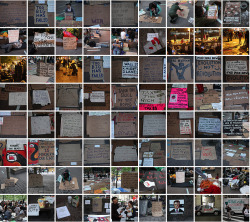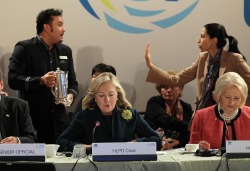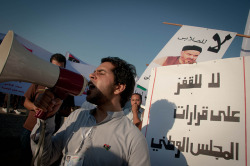Egypt's Military Junta to Announce Election Dates September 26; Foreign Observers Banned
Egypt will start parliamentary elections on November 21, Al Arabiya Television and the Al-Ahram newspaper reported on Saturday, the country’s first vote since a popular uprising toppled President Hosni Mubarak in February after 30 years of autocratic rule.
Al-Ahram quoted Egypt’s election commission head, Abdel Moez Ibrahim, as saying voting for the lower house, the People’s Assembly, will be held in three stages starting on November 21 and ending on January 3. Voting for the upper house, the Shura Council, will begin on January 22, 2012 and finish on March 4.
These dates aren’t confirmed, they’re only leaks to regional media outlets. A spokesmen for the military says only that the official dates will be announced on September 26.
The legitimacy of these polls, with history as a guide, are to be rightfully questioned. Reuters reports that some efforts are being made to ensure a free and fair election:
The [Supreme Council of the Armed Forces] has said the judiciary will oversee the vote to ensure a free and fair poll. A member of the council said in July the election will be held in three stages to make it easier for monitors to oversee voting.
One question is the role that international media and election monitoring organizations will play in the transition to credible democracy. Although Egypt’s revolution was successful in overthrowing the Mubarak regime, Egyptians still live under a military junta accustomed to total domination of society, including within the judiciary offered as one of the primary election monitors.
In July, the junta announced that there would be no foreign observers allowed to monitor the upcoming elections, citing the need to protect Egypt’s sovereignty. During Egypt’s last elections (under the Mubarak regime), fraud and election improprieties were widespread and well-documented, as Patrick Meier wrote back in May:
Another report submitted on December 5, 2010 was even more specific: “Buying out votes in Al Manshiaya Province as following: 7:30[am] price of voter was 100 pound […]. At 12[pm] the price of voter was 250 pound, at 3 pm the price was 200 pound, at 5 pm the price was 300 pound for half an hour, and at 6 pm the price was 30 pound.” Another report revealed “bribe-fixing” by noting that votes ranged from 100-150 Pounds as a result of a “coalition between delegates to reduce the price in Ghirbal, Alexandria.” […]
Additional incidents mapped on the Ushahidi platform included reports of deliberate power cuts to prevent people from voting. As a result, one voter complained in “Al Saaida Zaniab election center: we could not find my name in voters lists, despite I voted in the same committee. Nobody helped to find my name on list because the electricity cut out.” […]
Reports also documented harassment and violence by thugs, often against Muslim Brotherhood candidates, the use of Quran verses in election speeches and the use of mini buses at polling centers to bus in people from the National Party. […]
As thoroughly and specifically as these incidents are documented, their validity can still be questioned due to the fact that they come singularly from Egyptian activists. Activists are burdened with incentives and interests that might tarnish the quality of their reporting, whereas international organizations (such as the Carter Center or Democracy International) don’t come with these same biases and fallibilities.
Until full trust and credibility is restored to Egypt’s government and civil society institutions - including the judiciary - then impartial, international observers must be allowed to monitor the upcoming elections.
(Source: juancole.com)






